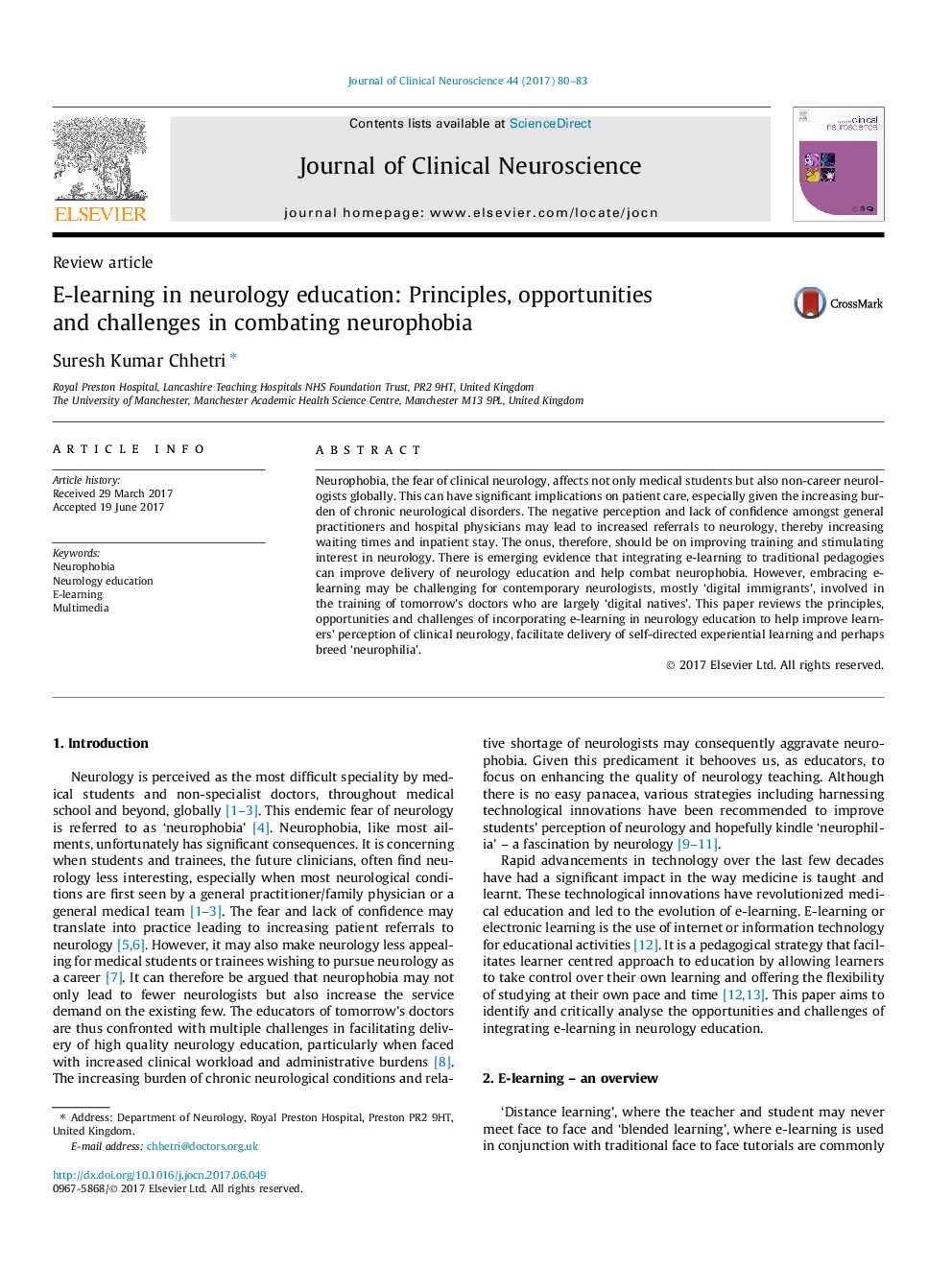| Article ID | Journal | Published Year | Pages | File Type |
|---|---|---|---|---|
| 5629510 | Journal of Clinical Neuroscience | 2017 | 4 Pages |
â¢Neurophobia affects not only medical students but also non-career neurologists.â¢Various strategies have been recommended to improve learners' perception of neurology.â¢E-learning is the use of electronic technology in teaching and learning activities.â¢E-learning facilitates experiential learning and may help combat neurophobia.â¢It is important for medical educators to be aware of the principles of e-learning.
Neurophobia, the fear of clinical neurology, affects not only medical students but also non-career neurologists globally. This can have significant implications on patient care, especially given the increasing burden of chronic neurological disorders. The negative perception and lack of confidence amongst general practitioners and hospital physicians may lead to increased referrals to neurology, thereby increasing waiting times and inpatient stay. The onus, therefore, should be on improving training and stimulating interest in neurology. There is emerging evidence that integrating e-learning to traditional pedagogies can improve delivery of neurology education and help combat neurophobia. However, embracing e-learning may be challenging for contemporary neurologists, mostly 'digital immigrants', involved in the training of tomorrow's doctors who are largely 'digital natives'. This paper reviews the principles, opportunities and challenges of incorporating e-learning in neurology education to help improve learners' perception of clinical neurology, facilitate delivery of self-directed experiential learning and perhaps breed 'neurophilia'.
